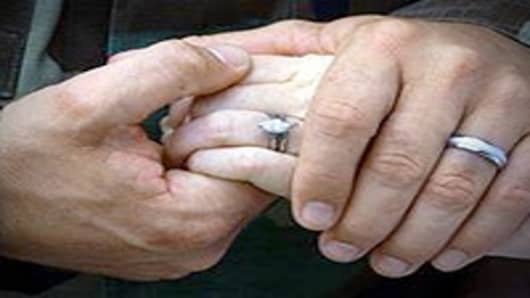Love is one thing; money quite another.
Marriages these days resemble financial partnerships more than outright mergers.
For starters, few ultra wealthy folks wed without a pre-nuptial agreement or trust—or both—in place. After all, everyone remembers Paul McCartney and his prenup-less legal battles with his ex-wife.
“The number of prenups is skyrocketing,” says Robert Wallack, a New York City-based attorney. “People are much more protective than before.”
According to a survey by the American Academy of Matrimonial Lawyers, prenups are up 73 percent in the past five years. And more women are requesting them.
The mind set: what’s mine must remain mine, but you can use it for now.
That makes it more important to nail down titles for things such as vehicles and real estate and put financial assets in trusts. Personal possessions like jewelry are usually kept separate and can be put in a separate trust.
Not that it’s easy. Asking for a prenup can dampen the mood and expose insecurities. And financial conversations can even start with romance-squelching questions like: What happens if you get a divorce? What are you willing to lose?
Meshing sizable collectibles or teams of people together can also trigger testy discussions that can test a marriage before it even begins.
But there is a big pay-off. Navigating these emotional sinkholes helps your marriage endure, say experts.
“A lot of people don’t start the conversation early enough,” says Wallack. “Money is the biggest hot button that people have.”
Full transparency, though awkward, is the first step. And prenups are a good starting point. They require full disclosure, including all assets and liabilities.
“Some people have the conversation around the prenup,” says Natasha Pearl, ceo of Aston Pearl, a lifestyle management firm in New York. “The key is making it analytical and taking the emotion out of it.”
Not that it’s easy. “A pre-nup doesn’t mean I want a divorce,” says Dr. Lee Hausner, managing director of First Foundation Advisors in Irvine, California. “It’s fraught with lots of emotion.”
Merging assets is easiest between two wealthy individuals, since they probably already have their own trusts. But marriages between individuals with unequal assets is tricky—especially when the monied one has property and trusts in his or her own name and not jointly—and more likely to trigger emotional flare ups.
“You don’t love me,” is one response, says Hausner, who devises putting together a brain trust of professionals to handle both quantitative and qualitative issues.
The roadmap is usually an estate—or financial—plan.
Assets held in a separate property trust protect a spouse-to-be, if there's a divorce. Any assets acquired after the marriage vows can be held jointly.
But spouses are increasingly hiding assets, adds Wallack. “You’d be amazed at the lengths that people go to when hiding money,” he says. “We see accounts set up in the Caribbean or Switzerland.”
Either way, there’s lots to juggle. Along with assets, there are teams of people, collectibles and real estate that need meshing.
Take blending teams, which can include family offices and personal assistants. “It can take about a dozen phone calls,” says Randi Grassgreen, director of family wealth planning at Crestone Capital Advisors. Another wrinkle: sometimes one spouse-to-be doesn’t like a team member, who may get re-assigned.
Real estate is another challenge. Typically, one spouse retains the title to a home. That can set off anxiety in a relationship.
Sorting out collections tests a new marriage too. Furniture—even heirloom versions—and artwork are the hardest to blend. The biggest sticking point: different kinds of artwork.
Pearl remembers one couple who had different completely different collection sensibilities.
“Her interest was Old Masters and French Impressionists,” says Pearl. “He is a foremost contemporary art collector—of difficult art.”
The solution? They asked Pearl to help them find an art advisor to mediate the situation. Later, they ended up allocating different homes for each art form —one for contemporary art, anther for traditional.
Sometimes, disputed items end up in storage, adds Pearl. “That’s the hidden story.”
Another option is hiring an interior designer or organizer. “They move stuff around on floor plans,” she says. “A lot of problems are avoided if you used these services before marriage.” The message: inventorying your stuff can save headaches later. “Think emotionally about what’s most important to you,” she adds.
“Successful marriages are about compromise,” says Hausner. “If one person says ‘I have something that’s a family thing,’” says Hausner, “and the other person says ‘I can’t stand that,’ it’s a red flag.”
That’s why Grassgreen counsels couples to not “get married before making sure you’re on the same page about assets.”



